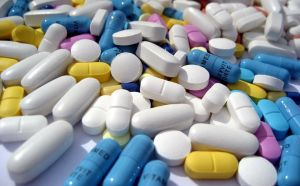Let Them Eat Drugs
Posted on by Townsend MyersI’ve written several times about the advances our judicial system has made in its attitudes and approach. However a recent article has left me scrambling to put a positive spin on the prevailing method for dealing with juvenile offenders, but here goes: fifty years ago we’d have them in leather restraints, whereas today we simply give them massive doses of powerful drugs.
Yeah, it reads just as badly as it sounded in my head.
The practice of giving potent antipsychotic drugs to juveniles in correctional facilities is referred to as ‘chemical restraint.’ This disciplinary use of drugs like Seroquel and Risperdal (two in a group of medications known as ‘atypicals’) was brought to public attention by a 2010 article in Youth Today and was recently investigated locally by The Lens.
This investigative report sought information into the use of these drugs in eight juvenile facilities in Louisiana. According to The Lens writer Matt Davis:
“None of the eight facilities [approached] provided all of the information requested. One parish took six months to comply with our request and then released diagnoses but not medications, while Jefferson Parish declined to release any information on the L. Robert Rivarde Memorial Home for juveniles, citing inmate privacy concerns — even though The Lens did not seek individual client records or the names of juvenile inmates receiving treatment.”
Records show these facilities purchased vast quantities of these atypicals in concentrations far exceeding recommended dosages for juveniles, when only a small percentage of the juveniles in custody had been diagnosed with schizophrenia and bipolar disorder, the conditions these drugs are designed to treat. Over half of the juveniles had been diagnosed with the afflictions of Conduct Disorder (defiance and impulsive behavior), ADHD, cannabis addiction, and the scourge of Mood Disorder.
The effects of these powerful drugs is to “numb the overall impulses and actions… whether they have a psychotic disorder or not,” explained Youth Today writer John Kelly. That’s a nice way of saying they make anyone who takes them into a zombie. These drugs have serious side effects such as elevated cholesterol levels and onset of diabetes.
In the areas of mental health and the courts, we seem to be taking giant steps sideways. While the City of New Orleans was expanding its Mental Health Court program, Gov. Bobby Jindal was closing the New Orleans Adolescent Hospital and outpatient system, which had provided help for mentally ill children. These youths will most likely find their way into the juvenile justice system and face the reality of chemical restraint instead of receiving the help they need to join the rest of us in a just and compassionate society.












